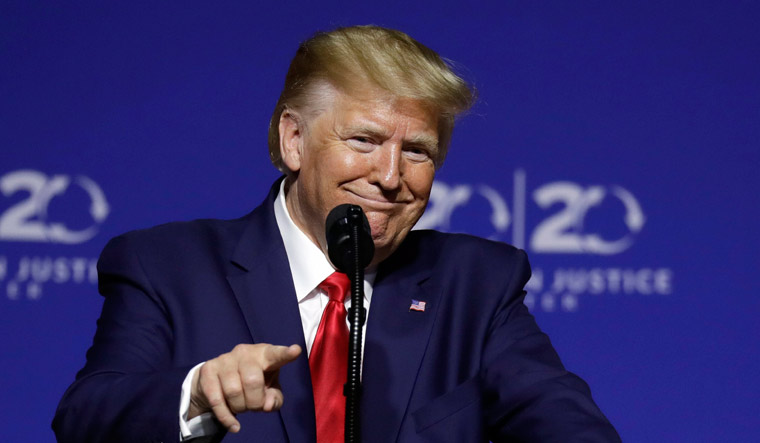As a result of the more restrictive Trump administration policies, denial rates for H-1B petitions have increased significantly from just six per cent in 2015 to 24 per cent in the third quarter of the current fiscal, a study carried out by an American think-tank has showed.
ALSO READ
- Trump concedes defeat, allows Ukraine bill to pass
- Trump tried to 'corrupt' the 2016 election, prosecutor alleges as hush money trial gets underway
- Hush money trial: Juror dismissed as prosecutors seek to hold Trump in contempt
- Melania Trump: Keeping the former president calm
- More potential jurors dismissed as Trump's hush money trial enters second day
- Hush money trial: Prosecutors seek $3,000 fine against Trump over social media posts that ‘violate’ gag order
- Trump’s history-making hush-money trial begins with challenge of picking a jury
The study by the National Foundation for American Policy, based on data received from the US Citizenship and Immigration Services or USCIS, also reflects that denial rate for H-1B visas is highest among major Indian IT companies, thus giving credence to charges that Indian companies are being unduly targeted by the current administration.
For instance, the denial rate of H-1B petitions for initial employment for Amazon, Microsoft, Intel and Google in 2015 was just one per cent. In 2019, the same increased respectively to six, eight, seven and three per cent. The denial rate for Apple remained the same at two per cent.
During the same period, the denial rate jumped from four per cent to 41 per cent for Tech Mahindra, from six per cent to 34 per cent for Tata Consultancy Services, from seven per cent to 53 per cent for Wipro and from just two per cent to 45 per cent for Infosys, the study showed.
At least 12 companies that provide professional or IT services to other US companies, including Accenture, Capgemini and others, had denial rates of over 30 per cent through the first three quarters of fiscal 2019. Most of these companies had denial rates between two per cent and seven per cent as recently as in 2015, it said.
The denial rate for H-1B petitions for continuing employment was also high for Indian IT companies. For Tech Mahindra, it increased from two per cent to 16 per cent during the same period, while that of Wipro increased from four per cent to 19 per cent, and Infosys from one per cent to 29 per cent, the study showed.
On the other hand, the denial rates for H-1B petitions for continuing employment among major American companies were low Amazon (from one per cent to three per cent), Microsoft (remained at two per cent), Intel (from one per cent to three per cent), Apple (remained at one per cent) and for Google, it increased from 0.4 per cent in 2015 to one per cent in 2019.
Noting that between 2015 and 2019, the denial rate for new H-1B petitions for initial employment quadrupled from six to 24 per cent, the National Foundation for American Policy said to put this in perspective, between 2010 and 2015, the denial rate for "initial" H-1B petitions never exceeded eight per cent, while today the rate is three times higher.
"A key goal of the Trump administration achieved through memos and policy changes has been to make it more difficult for well-educated foreign nationals to work in America in science and engineering fields," the foundation said.
In the first three quarters of fiscal 2019, US Citizenship and Immigration Services adjudicators denied 24 per cent of H-1B petitions for "initial" employment and 12 per cent of H-1B petitions for "continuing" employment, it said.
The 12 per cent denial rate for continuing employment is also historically high. It was only three per cent in 2015, the think-tank said.



